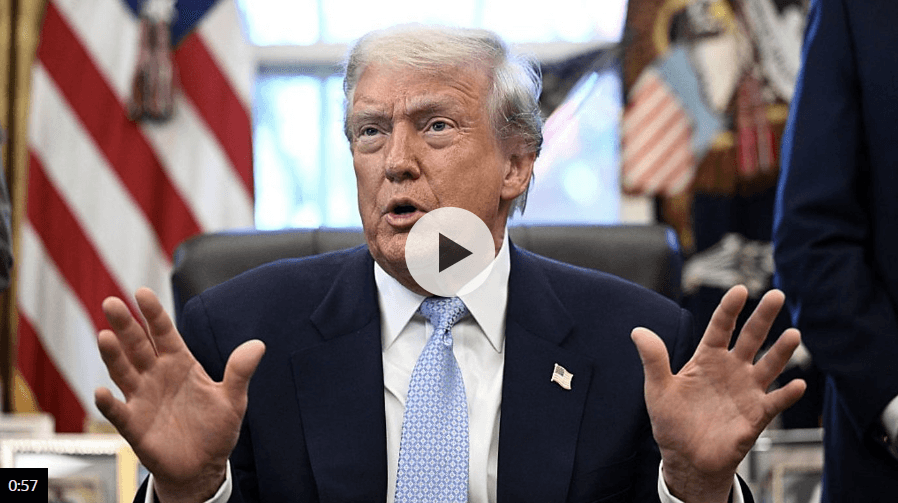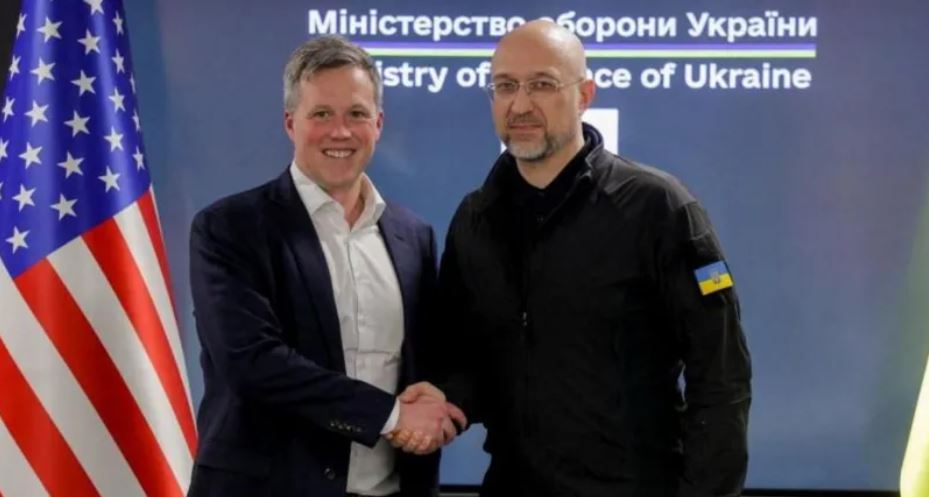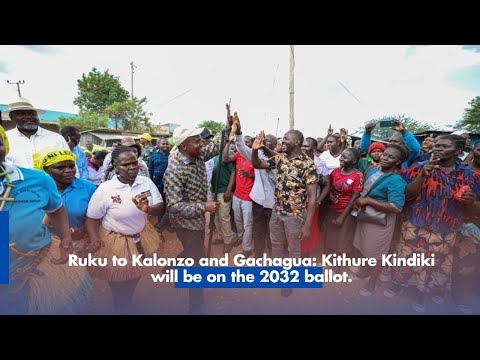

Senior Pentagon officials have arrived in Ukraine to "discuss efforts to end the war" with Russia, the US military has said.
The team, led by US Army Secretary Dan Driscoll, held talks with Ukrainian Prime Minister Yulia Svyrydenko on Thursday morning. They are expected to meet Ukrainian President Volodymyr Zelensky later in the day.
Reports began surfacing on Wednesday that the US and Russia had prepared a new proposed framework to end the war, requiring major concessions from Ukraine, including giving up territory and dramatically shrinking its military.
It was reportedly drafted by President Donald Trump's envoy Steve Witkoff and Russian special envoy Kirill Dmitriev.
Neither Washington nor Moscow have officially confirmed the plan.
However, US Secretary of State Marco Rubio wrote on X that achieving a "durable peace will require both sides to agree to difficult but necessary concessions".
He said the US was consulting both sides of the conflict to "develop a list of potential ideas for ending this war".
Driscoll's team is the most senior military group to travel to Kyiv since Trump took office in January. He is joined by Army chief of staff Gen Randy George, top US army commander in Europe Gen Chris Donahue, and sergeant major of the army Michael Weimer.
Details of the draft Witkoff-Dmitriev 28-point plan emerged more than three weeks after the two men are said to have spent three days in meetings in Miami, Florida.
Citing people familiar with the matter, Axios, the Financial Times and Reuters reported that the plans call for Kyiv to give up areas of the Donbas in eastern Ukraine that it still controls, to cut significantly the size of its armed forces, and to forego many of its weapons.
Zelensky has repeatedly ruled out any territorial concessions to Russia.
Kirill Dmitriev's team declined to comment on the reports. The BBC has also asked the White House and a representative for Witkoff to comment.
Kremlin spokesman Dmitry Peskov said on Thursday that "contacts" had taken place with the US, but no "consultations or negotiations" were happening.
Neither European nor Ukrainian officials are believed to have been involved in drafting the new proposal, sparking fears it could be overwhelmingly favourable to Russia.
EU foreign policy chief Kaja Kallas warned on Thursday that for any plan to work, it would need to have Ukrainians and Europeans on board, and French Foreign Minister Jean-Noël Barrot said "the Ukrainians do not want any form of capitulation".
After meeting US officials, Ukraine's prime minister did not address the rumoured plan - but said their visit provided "an opportunity for representatives of the American administration to assess the situation on the ground and see the consequences of Russian aggression".
Reports of the plan emerged on Wednesday, the same day Ukrainian officials said at least 26 people had been killed in a Russian missile and drone attack on blocks of flats in Ukraine's western city of Ternopil. Another 22 people were missing at the site, Zelensky said on Thursday.
Zelensky was in Turkey at the time of the Ternopil attack, and unconfirmed Ukrainian reports suggested that talks had been planned with Trump's envoy in Ankara, but were called off.
There was no mention of the proposed framework when the US army secretary arrived in Kyiv late on Wednesday. Army spokesman Col David Butler said only that Driscoll and his team were there "on behalf of the [Trump] administration on a fact-finding mission to meet Ukrainian officials and discuss efforts to end the war".
A Ukrainian official told CBS, the BBC's US media partner, that talks on the trip would focus on the military situation on the ground - as well as plans for a possible ceasefire.
The unnamed official said: "Presidents Zelensky and Trump have already agreed to stop the conflict along the existing lines of engagement, and there are agreements on granting security guarantees".
After talks with the US army secretary on Wednesday, Ukrainian Defence Minister Denys Shmyhal posted on X: "We focused on the next steps for implementing the historic defence agreements reached by President Zelensky and President Trump."
Kyiv and its Western allies, including the US, have been calling for an immediate ceasefire along the vast front line, but Moscow has ruled that out, repeating demands that Ukraine says amount to its de facto capitulation.
Earlier this month, Russian Foreign Minister Sergei Lavrov said Moscow's pre-conditions for a peace deal - including ceding territory, tough curbs on the size of Ukraine's military and the country's neutrality - had not changed since Putin laid them out in 2024.
Meanwhile, a White House official confirmed to the BBC that special envoy to Ukraine Keith Kellogg would leave his post in January.
He reportedly decided that this would be a natural end to his time in the post, which requires Senate approval beyond 360 days.
Kellogg has been seen as an important advocate for Ukraine in the White House during a time when Trump has often appeared to side with Russia in the conflict.














